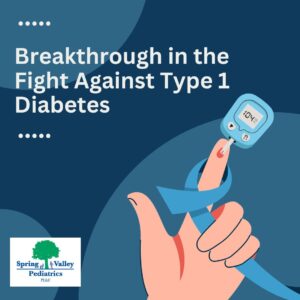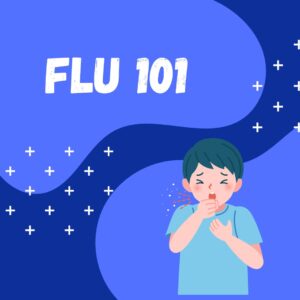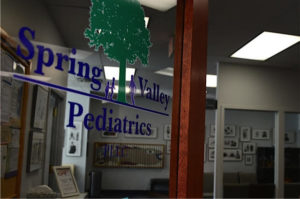Measles
With measles cases rising in the United States this year, we are fielding lots of questions from concerned parents. Dr. Tara Mamdouhi is here to answer some of those.
Measles has been surging in the U.S. and abroad, and we want to make sure our patients are protected! Measles is a highly contagious viral illness that spreads through respiratory droplets. It typically begins with high fever, runny nose, and red, watery eyes, followed by a characteristic red rash that starts on the face and travels downwards. The rash typically appears about 3-5 days after initial symptoms. About 20% of people with measles will require hospitalization for things like pneumonia or encephalitis (swelling of the brain). Measles is particularly dangerous for babies and young children.
The good news is that we have a safe and effective vaccine to help protect against measles! The measles vaccine (which covers measles, mumps and rubella—also known as the MMR vaccine), is typically given at 12 months and 4 years old. For patients who are at increased risk of measles exposure, a dose of MMR may be given between 6 and 12 months of age for early protection. This dose does not count as one of the two doses needed for full protection. For children between 12 months and 4 years old who are at increased risk of measles exposure, the second dose may be given early in order to give full protection earlier. The second dose can be given as early as one month after the first dose.
As of now, there have been no known local outbreaks of measles in the D.C. area. Therefore, no early vaccination is needed for families staying locally. For families traveling internationally or to an area in the U.S. with increased measles cases, the CDC recommends that babies ages 6-11 months get one dose of MMR and that everyone age 12 months and older receive two doses of MMR (at least one month apart). If you have a child under 4 years old and have any international travel plans or plan to travel within the U.S. to areas with measles transmission, please reach out to our office about potential early vaccination!
Source: www.cdc.gov/measles

 We are very excited to announce that Dr. Lily Joseph will be joining Spring Valley Pediatrics this summer.
We are very excited to announce that Dr. Lily Joseph will be joining Spring Valley Pediatrics this summer.
 Hey, everyone! Dr. Binns here, back with more info on these nasty winter bugs. Following up on last month’s
Hey, everyone! Dr. Binns here, back with more info on these nasty winter bugs. Following up on last month’s 
